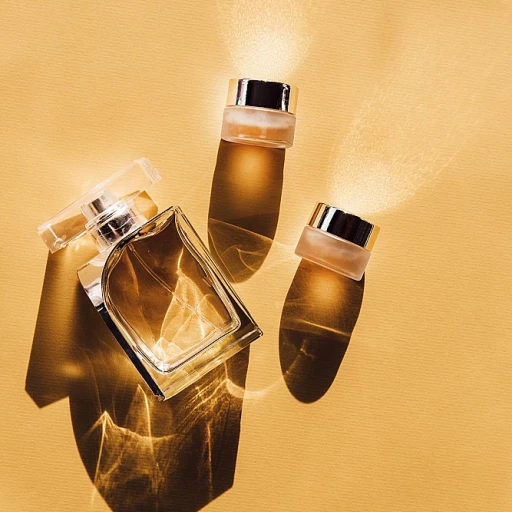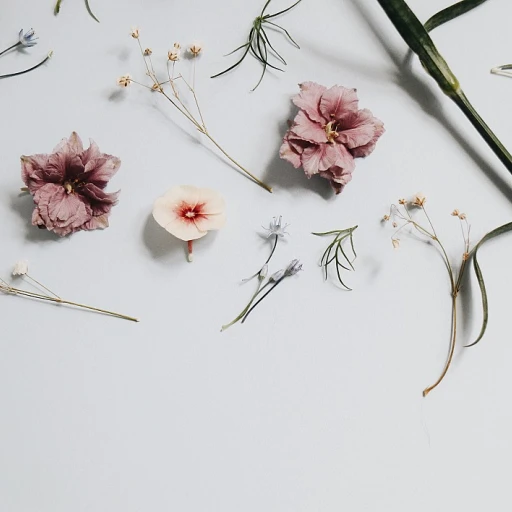
Understanding the basics of perfume creation
Demystifying the essentials of perfume creation
Creating your own perfume is like embarking on a magical journey. Before you dive into mixing and matching scents, it's essential to get a grip on the basics. The art of perfume creation has been around for centuries, mixing science with a touch of alchemy. Today, you don't need to be a master perfumer to create your custom scent - but understanding some core concepts will set you on the right path. Firstly, perfumes are crafted using a combination of essential oils, alcohol, and sometimes water. According to a report from Fragrance and Flavour Development, up to 80% of a perfume composition is alcohol. This is why some perfumes have that initial astringent smell which quickly fades as the essential oils take the front stage. The fragrance industry relies heavily on the use of natural and synthetic ingredients to produce a palette of scents. For example, bergamot, a common component in many perfumes, delivers a fresh and citrusy aroma that’s often used in fine fragrance. It is essential to know which ingredients speak to your senses and how you want your signature perfume to resonate. According to The Fragrance Foundation, an average of 73% of consumers are interested in custom scents because they offer a unique expression of personality. That’s a significant chunk showing interest in stepping away from generic, mass-produced perfumes towards something more personal and distinctive. Mastering the art of perfume blending might seem daunting, but many enthusiasts find it rewarding. For those just starting, there's a wealth of resources available. Sally Hornbuckle, an expert perfumer, emphasizes that understanding the olfactory family, which includes floral, woody, oriental, and fresh scents, can significantly aid in creating a harmonized final product. Your creation journey doesn’t end at just mixing oils. Exploring and experimenting can lead you to unexpected delights. Read more about perfume blending techniques and get insights from master perfumers here.Essential oils: the building blocks of your custom scent
Essential oils: your building blocks
When it comes to creating your own perfume, essential oils play a crucial role. These oils are the backbone of your custom scent, offering the primary notes that define your fragrance. Essential oils are concentrated extracts from plants, capturing their natural scents in a potent form. From the floral elegance of lavender to the citrus burst of bergamot, there's a wide variety of options to explore.
According to the International Fragrance Association (IFRA), there are over 3,000 different ingredients available for use in perfumes, including a vast array of essential oils. The challenge lies in choosing the right ingredients that represent your signature scent.
How to choose your essential oils
When selecting your essential oils, consider what you want your perfume to convey. Different oils have different characteristics and can evoke various emotions. For example, lavender and chamomile are known for their calming properties, while citrus oils like bergamot and lemon are uplifting and invigorating.
Don't be afraid to experiment. You might find that a blend of sweet almond oil and a few drops of jasmine creates a mesmerizing fragrance. According to Robertet, a leader in natural raw materials for perfumes, the key is balance and harmony. Your choices should complement one another and create a cohesive blend.
Their role in custom fragrances
Essential oils are not only the building blocks of your perfume but also its soul. They define your fragrance's character and longevity. For instance, some oils are great for top notes that offer an initial burst of scent (like citrus oils), while others are better suited for base notes (such as sandalwood or vanilla), which provide depth and staying power.
Perfumers like Francis Kurkdjian stress the importance of understanding how different oils interact with each other. This interaction is what makes your custom fragrance truly unique. As you mix and match different oils, you'll discover combinations that resonate with you, helping you create a scent that is distinctly yours.
For those new to perfume making, investing in a perfume making kit can be incredibly helpful. These kits usually include a variety of essential oils, blending tools, and step-by-step instructions, making the process easier and more enjoyable.
The importance of fragrance notes: base, heart, and head
The essence of fragrance notes
When it comes to making your own perfume, understanding fragrance notes is crucial. These notes are often categorized into three main types: base, heart, and head notes. Each plays a vital role in how a scent evolves over time. Base notes form the foundation of your fragrance, providing it with depth and longevity. Common base notes include vanilla, sandalwood, and musk. Heart notes, also known as middle notes, emerge after the top notes evaporate, usually lasting up to an hour. Rose, lavender, and jasmine are popular choices here. Finally, head notes are the initial impression of the scent, these are the lightest and most volatile. Think of citrus fruits like bergamot or lemon for a zesty opening. While some may argue which type of note is more important, what's clear is that each contributes uniquely to the overall profile of your custom scent.Breaking down the layering technique
The art of blending these notes is not just a science but also a skill that requires a lot of trial and error. Each oil has to be tested for its compatibility with other oils. Many perfumers recommend starting small, with few oils, and gradually increasing the complexity as you get more confident. For a deeper dive into how to layer your custom scent, you might want to read about layered fragrance blending techniques. The trick is to ensure that the final blend isn't too overwhelming but rather harmonious.Fine-tuning your creation
As you mix and match different notes, remember to take breaks and come back to your creation with a fresh nose. Scent perception can become dull after prolonged exposure, a phenomenon known in the industry as 'olfactory fatigue.' By revisiting your blend after some time, you'll be able to assess its depth and complexity more accurately. Another tip from experts is to use a scent strip or blotter to test your blends. This allows you to experience the full development of the fragrance in stages, giving you better insights into whether adjustments are needed in your formulation. Creating a custom fragrance is akin to crafting a piece of art. Each note you add is a brushstroke in a bigger picture that is your unique scent. As you proceed, remember that the journey is just as fulfilling as the end product.Choosing your perfume bottle: form and function
Choosing the perfect perfume bottle: a balance of form and function
Selecting the right perfume bottle is an art in itself. It's not just about the look; it's about how it feels in your hands, the way it sprays your carefully crafted fragrance, and how it stores and preserves your essential oils. Think of it as choosing a home for your custom scent, a place where your masterpiece can reside and be enjoyed for years to come.When considering a glass perfume bottle, you'll want to focus on several key factors. These include the material, shape, size, and functionality of the spray mechanism. High-quality glass is often preferred due to its ability to preserve the integrity of the perfume oil, shielding it from the degrading effects of light and air. However, innovative materials and designs are also trending, like the use of more environmentally friendly options.
Anne Flipo, a master perfumer at IFF, emphasizes the importance of bottle design: "A perfume bottle should both protect the fragrance and reflect its character." Imagine how a sleek, minimalist spray bottle might convey a modern, clean scent, whereas a vintage, ornate bottle might hint at a more classic, rich fragrance profile.
The emotional journey
Creating your own custom perfume isn't just about the end result; it's about the journey. From selecting the perfect essential oils to choosing the right bottle, every step brings you closer to your signature scent. Your scent becomes an extension of who you are, a personal creation that tells your story. Choosing a bottle that aligns with your fragrance's personality can significantly enhance this experience.
No detail is too small. Even the type of spray mechanism can make a difference. Some prefer a fine mist that evenly distributes the scent, while others enjoy a powerful burst. Test out different options and find what suits your fragrance style best.
Practical tips for choosing your bottle
Before making a final decision, consider requesting samples or testing out different bottle types. This practical approach allows you to feel the bottle's weight, see how it fits in your hand, and test the spray mechanism. Whether you choose a classic design or something more modern, what's crucial is that it resonates with you and your custom fragrance.
Investing in a quality bottle isn't just about aesthetics. It ensures your unique scent is protected and maintained, ready to be worn or shared as a thoughtful gift. Remember, your perfume bottle is more than just a container; it's part of the overall sensory experience, enhancing how your custom fragrance is perceived and cherished.
Perfume making kits: a hands-on experience
Why a perfume making kit is your best hand-on experience
Creating your own perfume is not just about picking scents; it's an adventure. And to make this adventure easier and way more fun, perfume making kits are the go-to. These kits come with everything you need: essential oils, a variety of fragrance notes, and often even your own empty glass perfume bottles. Each tool and ingredient in the kit plays its part in helping you create your unique scent. Let's get into the juicy details of why these kits are the ultimate gateway to a custom fragrance.
All-in-one convenience
A massive perk of perfume making kits is that they gather everything in one place. Forget the hassle of sourcing ingredients from multiple shops or worrying if you've got the right stuff. You'll often get pre-measured essential oils, fragrance notes categorized as base, heart, and head, and a detailed guide to walk you through the process. It saves you time and eliminates guesswork.
Beginner-friendly steps
If you’re new to this, a kit makes everything straightforward. Kits usually come with easy-to-follow instructions and proportions. This helps avoid the dreaded fragrance fail and ensures your custom perfume smells divine. Experts recommend trying beginner kits first. According to master perfumer Sophia Grojsman, "Starting with a kit is akin to training wheels on a bike. It helps build confidence and skill."After all, having the right tools and clear instructions is half the battle won!
Personalized experience
A perfume making kit brings the scent lab right to your home. You can experiment, blend, and reblend till you hit that perfect note. It's not just about making perfume; it's about creating something deeply personal. You could also gift these kits, turning it into a shared experience. A couple once said making each other's fragrance was the most intimate, fun thing they ever did, and they now gift similar kits for anniversaries!
Cost-effective to boot
When you consider how much you might spend buying individual ingredients and tools, a kit actually turns out to be a steal. Plus, it’s a great way to try out fragrance-making without committing a fortune. According to a survey by The Fragrance Foundation, 63% of beginners found kits to be a more economical way to start their journey.
Hands-on learning
With perfume making kits, you learn by doing. It's a trial and error process, but every blend you create offers a new lesson. When you mix essential oils, test out various notes, and experiment with proportions, you’re deeply engaging with the art of fragrance creation. It's a tactile experience, and nothing beats that.
A journey to create your signature scent
In conclusion, perfume making kits are the best way to dip your toes into the world of custom fragrances. Whether you're doing it for yourself or as a unique gift, the hands-on experience is irreplaceable. You'll not just create a fragrance, but a memory. And that’s priceless.
Expert insights: tips and tricks from master perfumers
Insider tips from the best in the industry
Creating your custom perfume isn't just about mixing a few oils—there's an art and a science behind it. Who better to provide insights than expert perfumers who have spent years mastering their craft? Let's dive into their wisdom.Choosing and balancing the right essential oils
According to Luca Turin, a renowned biophysicist and perfume critic, “A successful fragrance is about balance.” Turin emphasizes the importance of selecting the right essential oils and balancing them perfectly. He suggests starting with a simple mix and gradually adding one oil at a time. This way, you can identify what each oil contributes to your custom scent. Christine Nagel, the in-house perfumer at Hermès, suggests focusing on quality over quantity. “A few drops of a high-quality essential oil can make a big difference,” she asserts. So perhaps don't be tempted to overdo it. Less can indeed be more.Understanding fragrance families
Expert perfumers suggest you should familiarize yourself with fragrance families. According to Michael Edwards, the classification of scents into families like floral, oriental, woody, and fresh can help you identify what appeals to you and what works well together. “The magic happens when you find a perfect blend that connects with your personality,” says Roja Dove, a celebrated British perfumer. “Don't be afraid to experiment within different fragrance families until you find your signature scent.”Aging your perfume
Just like fine wine, perfume needs to be left to age. Perfumer Jo Malone advises, “Let your perfume blend sit for a few weeks to allow the scents to mature and harmonize.” The aging process can bring out nuances in your custom perfume that you might not notice initially.Why dilution matters
Perfume oil generally needs to be diluted to avoid skin irritation. “A good ratio is about 80% carrier oil and 20% essential oils,” shares Thierry Wasser, the in-house perfumer for Guerlain. Sweet almond oil is a popular choice for dilution due to its neutrality and skin-friendly properties. Kim Weisswange, a celebrated custom fragrance expert, advises using a spray bottle for easy application and better distribution of your scent. “It allows the finer molecules to spread evenly and provides a more pleasant application experience,” she recommends. Want a more detailed guide on essential oils and their roles in fragrance creation? Check out this article. By following these expert tips, you'll be well on your way to creating not just a custom scent, but an unforgettable olfactory experience that truly represents you.Case studies: successful custom fragrances
Success stories from the world of fragrance
We've seen it time and time again: individuals from various walks of life stepping into the world of personalized perfumes and emerging with something uniquely theirs. Let's dive into a few examples.
Mary from Paris
Mary, a Parisian artist, wanted to encapsulate the essence of her art in a fragrance. Through meticulous selection of essential oils, she created a custom scent that included notes of bergamot, jasmine, and sandalwood. The result? A heady, inspiring perfume that not only reflects her personality but also serves as a sensory extension of her artwork. Her perfume-making kit became an essential tool in her creative process.
John's transformative gift
John, wanting to gift something truly unique to his wife on their anniversary, decided to concoct a perfume that tells their love story. He combined sweet almond oil with rose, vanilla, and a hint of musk. The custom-made perfume bottle, a sleek glass design, added the finishing touch to this heartfelt gift. This experience of creating your signature perfume turned the occasion into an unforgettable memory.
Insights from industry experts
Renowned perfumer Camille Gautier from London notes, "Creating a custom fragrance is more than mixing oils—it's about capturing emotions and memories in a scent. A well-balanced blend of base, heart, and head notes can evoke powerful feelings and memories." Her insights emphasize the importance of understanding fragrance notes, a key topic discussed in part 3 of our series.
Trends in the custom perfume industry
The trend of creating your perfume has seen a significant rise. Personalized scent experiences are becoming increasingly popular, with more people opting to craft their fragrances at home using perfume-making kits. According to a report by Fragrance Foundation, there has been a 30% increase in sales of custom fragrance kits in the past year.
Engage your senses and craft your unique scent today. Whether it's for yourself or as a thoughtful gift, the journey of creating your fragrance is both rewarding and delightful.
Creating your signature perfume: final steps and tips
Defining your unique identity through scent
Creating your signature perfume is an exciting, final step in the process of personalizing your fragrance. It’s more than just mixing a few oils; it's about expressing your personality, evoking memories, and defining your unique identity through scent.
Blending to perfection
The art of blending essential oils and other fragrance components requires a well-balanced approach. According to Jean-Claude Ellena, renowned perfumer, “A great perfume is one where you recognize the hand of its creator.” Striking a balance between top, heart, and base notes is essential, and each layer should complement the other seamlessly.
Besides, experts suggest starting with your base notes, such as vanilla or sandalwood, which anchor your perfume. Then, add heart notes like rose or jasmine, which give the fragrance its personality, followed by top notes like bergamot or lemon, which provide the initial burst of scent.
Importance of testing and adjusting
Testing various combinations is crucial. As you create your custom perfume, let each blend sit for a few days and revisit it to see how it evolves. This process, often referred to as maceration, allows the notes to meld properly, revealing the final scent profile. Remember, “A perfume must be like a coherent, living being”, says Edmond Roudnitska, a celebrated perfumer.
Decanting and storing your creation
Once you are satisfied with your blend, pour it into your chosen perfume bottle. The bottle is not just a container; it’s part of the experience. Opt for glass perfume bottles, which preserve the integrity of your scent better. Store your creation in a cool, dark place to maintain its freshness.
Creating your signature perfume is an intricate yet fulfilling process, combining creativity with a bit of science. From selecting your favorite essential oils to adjusting the balance of notes, the journey is enriching. And with patience and experimentation, you'll find yourself holding a bottle of liquid expression that's uniquely yours.
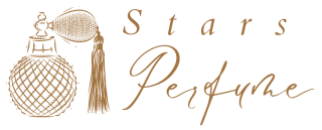
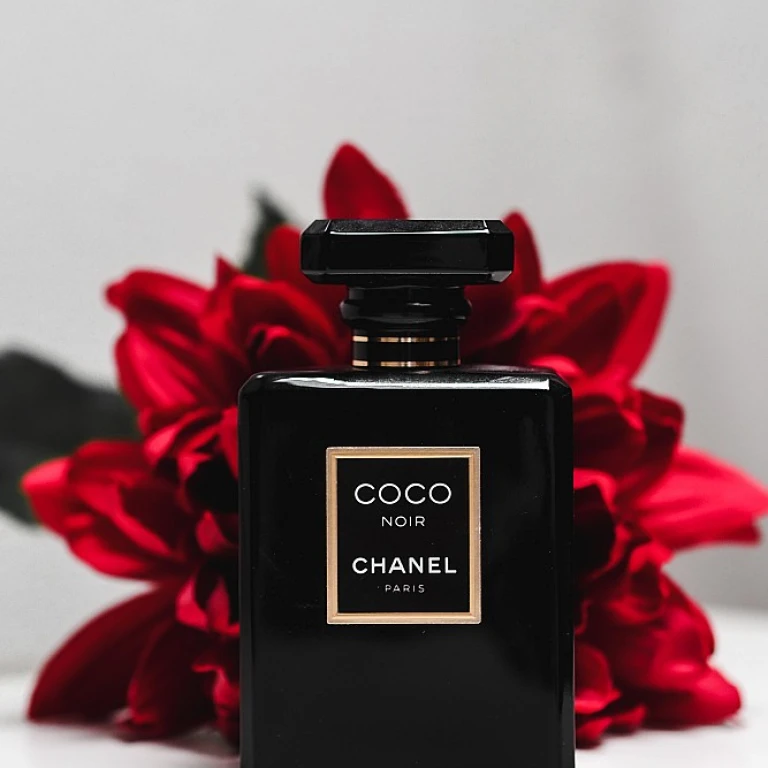
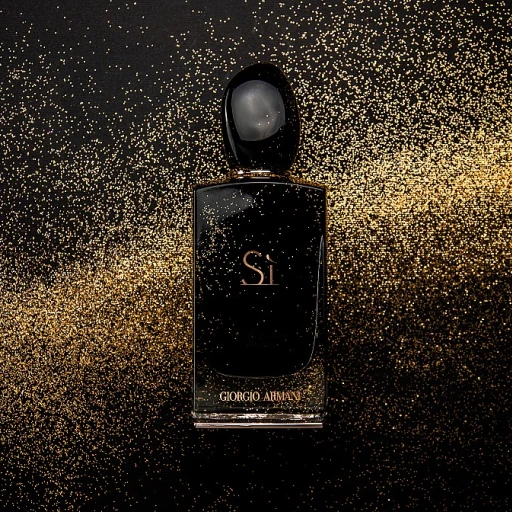

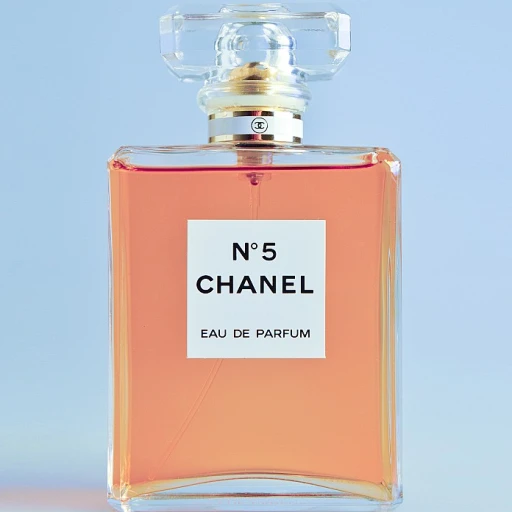
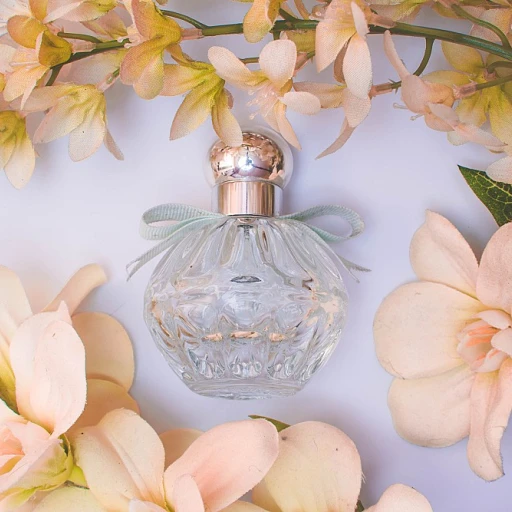
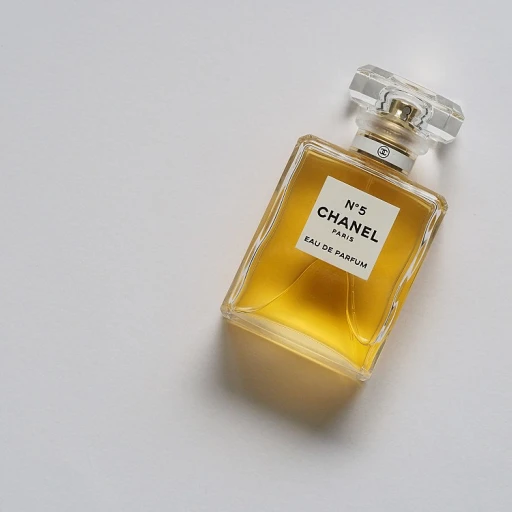
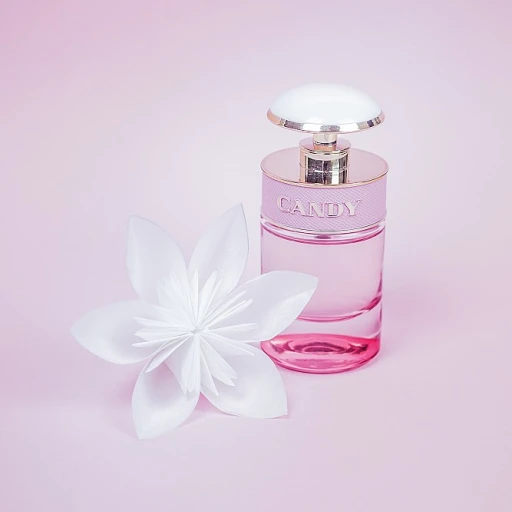
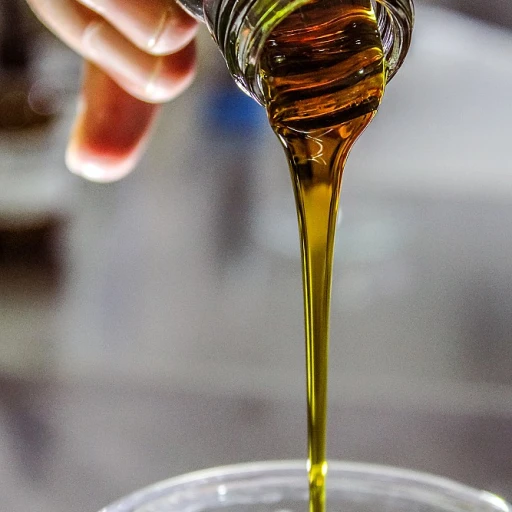
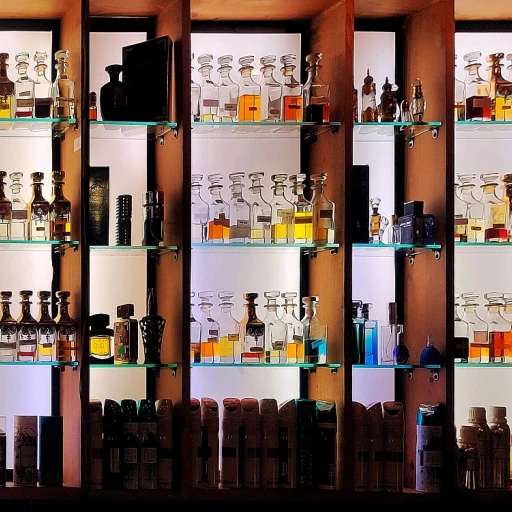
-large-teaser.webp)


